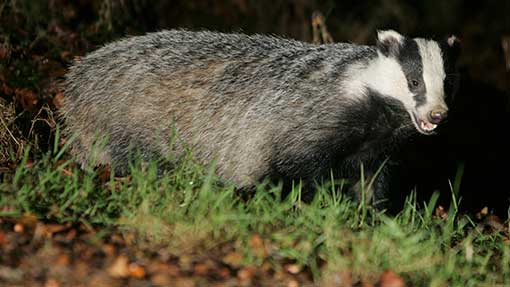Welsh stance on badger cull wrong, says Meurig Raymond

The refusal to authorise a badger cull to combat bovine TB in Wales has left farmers fighting the disease with one hand tied behind their backs, industry leader Meurig Raymond has warned.
In his first major interview with Farmers Weekly since becoming NFU president last month, Mr Raymond said Welsh politicians had failed to grasp the impact of bovine TB – in stark contrast to DEFRA secretary Owen Paterson, who hopes to roll out culling more widely in England.
Culling was “hugely emotive”, acknowledged Mr Raymond. But anyone who doubted its effectiveness only needed to look at the result of culling in Ireland, where the incidence of bovine TB had dropped by 50% in four years.
See also Interview: Meurig Raymond on life as NFU president
“That proves to me that the politicians in Wales got it wrong,” he said. “Farmers are trying to control the disease with one hand tied behind their backs. Conversely, Owen Paterson understands the impact of the disease.”
Mr Raymond added: “I do despair that in Wales the policymakers have not understood what a significant impact bovine TB is having on huge numbers of farmers. They don’t seem prepared to grasp that problem.”
This month marks two years since the Welsh Assembly Government dropped plans to cull badgers as part of a “science-led” approach towards bovine TB. Instead, it opted to pursue a five-year badger vaccination project.
Mr Raymond’s comments followed a backbench debate that saw Westminster MPs vote by 219 to one against culling badgers to control bovine TB. The debate – and subsequent non-binding vote – was largely boycotted by government MPs, who support the policy.
The vote will do little to allay fears among farmers who are increasingly concerned about the time it is taking for the government to decide whether badger culling should take place more widely following two pilot culls in Somerset and Gloucestershire last autumn.
Farm minister George Eustice, who attended the debate, said an independent report examining the humaneness and effectiveness of the culls had now arrived at DEFRA. Mr Paterson will review the report before deciding whether to roll out culling to other areas of England.
Meanwhile, researchers at Nottingham Trent University hope a £1.1m study will speed up detection of bovine TB – one of the biggest challenges facing the cattle sector – by developing a portable testing device they say will identify the disease within minutes.
It currently takes up to a week to identify bovine TB, using two separate skin tests and further laboratory analysis. Researchers say the study could give an almost instant diagnosis from a simple blood test carried out using a device the size of a smartphone.
This means decisions to vaccinate, isolate or cull an infected herd could be made before the disease spreads or worsens.
